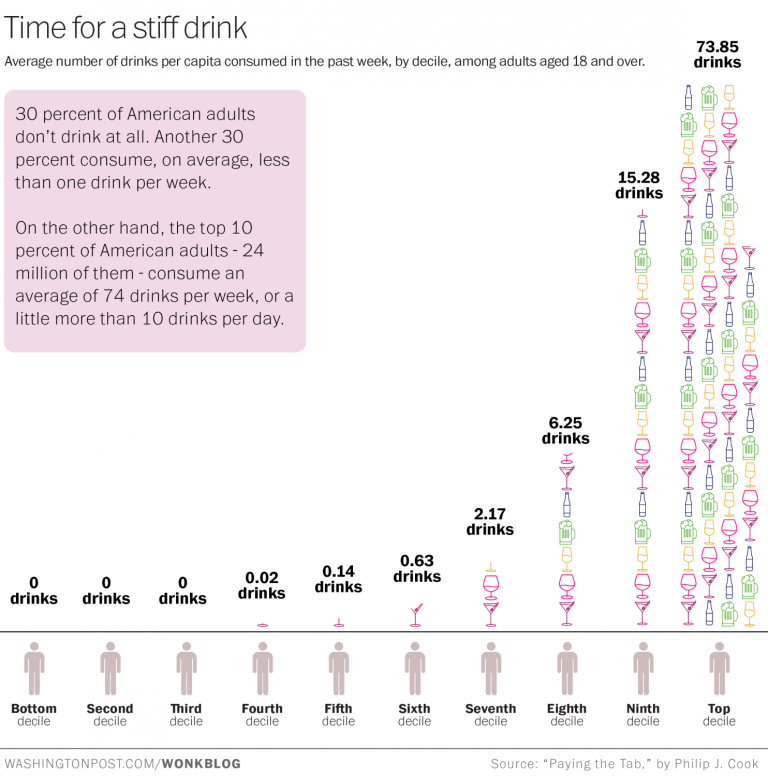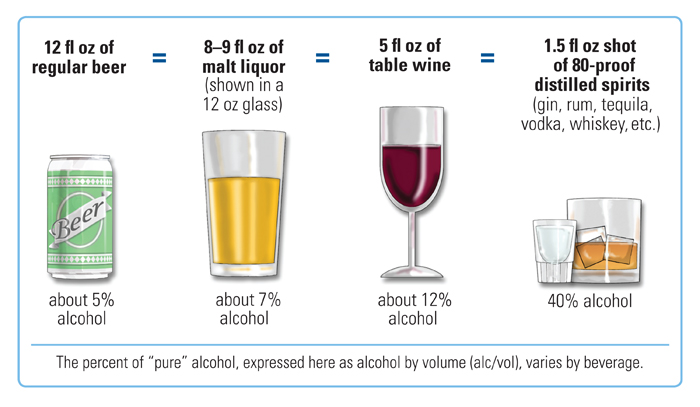If you are an alcoholic who consciously wants to stop drinking but can’t; a heavy drinker who never gives any thought to whether or not you are drinking too much, or a social drinker who believes that drinking is important, compelling you to continue with the addiction – these 8 reasons will convince you to quit drinking the poison right away, come what may.
1. Alcohol Causes Cancer
American Cancer Society says the amount of alcohol consumed over time, not the type of alcoholic beverage, is the most important factor in raising cancer risk. Alcohol is a known cause of cancers of the Mouth, Throat (pharynx), Voice box (larynx), Esophagus, Liver, Colon and Rectum, Breast, and Pancreas. For each of these cancers, the risk increases with the amount of alcohol consumed.
The International Agency for Research on Cancer of the World Health Organization has classified alcohol as a Group 1 carcinogen. In its Report on Carcinogens, the National Toxicology Program of the US Department of Health and Human Services lists consumption of alcoholic beverages as a known human carcinogen.
Every year, alcohol causes 4% of cancers in the US and the UK.
2. Alcohol Contributes To Vitamin D Deficiency
Alcohol interferes with the pancreas and affects the liver – both of which are important to absorb and activate calcium, and vitamin D, which amongst other things, helps build and maintain strong bones.
According to the University of Maryland Medical Center, alcoholism can lead to malnutrition [because alcohol suppresses the appetite], which leads to inadequate intake and absorption of food and nutrients. For this reason, even heavy drinkers who consume high levels of nutrient-rich food, fail to get the full benefit of those nutrients.
3. Alcohol Affects B-12 Absorption
Drinking alcohol, even in moderation, can have profound effects on the way your body absorbs vitamin B-12, the deficiency of which leads to heart attack and stroke, megaloblastic anemia, fatigue, shortness of breath, tingling and numbness in the extremities, headache, dementia, disorientation, loss of concentration and memory, and even death.
4. Alcohol Destroys Liver – Forever
Between 10 and 20% of heavy drinkers develop liver cirrhosis – severe scarring and disruption of the normal structure of the liver not reversible with abstinence. Alcohol abuse is one of the three most common causes of cirrhosis of the liver in the US; according to the National Institutes of Health, liver cirrhosis is the 12th leading cause of death by disease.
5. Alcohol Is A Depressant
Some people use alcohol to calm their nerves, to soothe their anxiety and to relieve stress. But alcohol is not a medication. Alcohol is a depressant, which actually worsens anxiety by changing the levels of serotonin and other neurotransmitters in the brain; that’s why some people feel more anxious after the alcohol wears off.
6. Alcohol Impairs Memory
Blurred vision, slurred speech, slowed reaction times, impaired memory, and black-outs – these are some of alcohol’s damaging effects on the brain. Men drinking 2.5 or more alcoholic beverages daily at midlife, are more likely to experience more rapid mental losses over the next decade, than light or moderate drinkers.
7. Alcohol Irritates Digestive System
Alcohol can damage the inner lining of the stomach, the pancreas, liver, and gallbladder; alter the structure and function of the gastrointestinal tract; and lead to abdominal discomfort, stomachaches, heartburn, and acid reflux.

8. Alcohol Affects Sleep Quality
While many drinkers would argue that alcohol helps them fall asleep a little faster, researchers at the University of Melbourne have found that alcohol just before sleep can lead to poorer quality slumber. You’re more likely to wake up during the night, and may not feel as rested following your sleep.
“People tend to feel that alcohol helps them fall asleep a little quicker, and therefore people associated that with helping them sleep. But when you actually go and look at what is happening while they sleep, the quality of that sleep isn’t good.”
And, just so you know, lack of good quality sleep can mess with your genes – insufficient sleep and circadian rhythm disruption are associated with negative health outcomes, including obesity, cardiovascular disease, and cognitive impairment.
Know Your Limits, BUT Be Sensible
According to the Dietary Guidelines for Americans, moderate drinking is up to 1 drink per day for women and up to 2 drinks per day for men. But with alcohol, the line between “moderate use” and “dangerous use” can be a thin one.
 Originally written by Vandita and published on anonhq.com
Originally written by Vandita and published on anonhq.com
